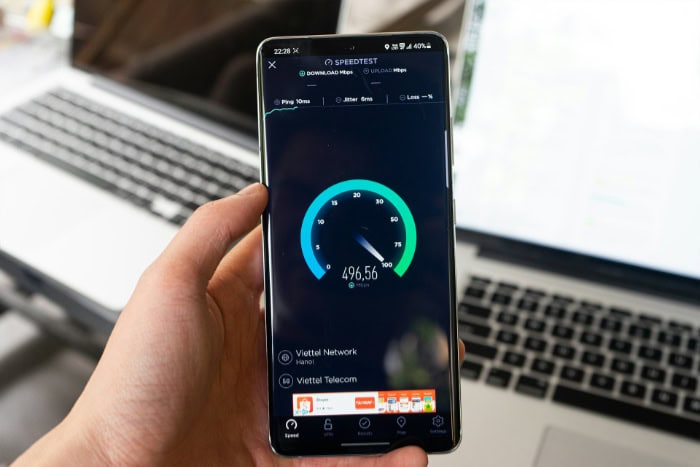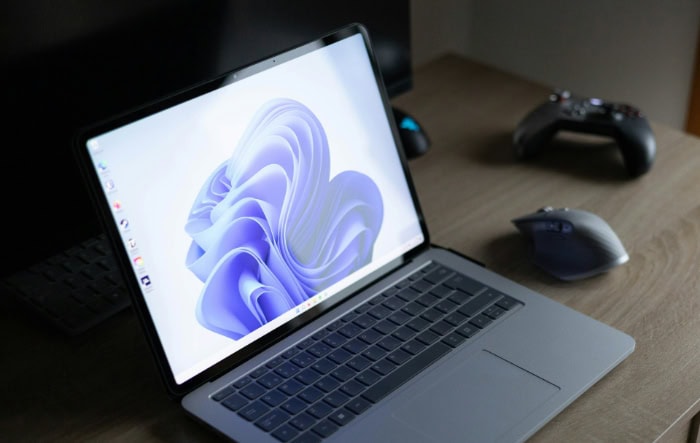What Is a Metered Connection? What You Need to Know

A surprise data overage charge on your phone bill can ruin your month, just as a mobile hotspot that slows to a crawl can derail an important task. These frustrating moments often happen because background apps and automatic updates quietly consume your limited data without you realizing it.
There is a powerful but frequently overlooked tool built directly into operating systems that puts you back in control. By designating a network as “metered,” you instruct your devices to pause non-essential downloads and background activity.
This simple adjustment helps you avoid extra fees, preserve bandwidth for critical work, and make the most of any capped connection, from a hotel’s Wi-Fi to your own personal hotspot.
What a Metered Connection Is
A metered connection is, in essence, any internet link where data usage is tracked against a set allowance. When a network is marked as metered, the operating system initiates data-saving protocols.
These protocols reduce non-essential activity, such as automatic app updates, file synchronization, and other background processes that consume bandwidth. The primary function of the setting is not to block internet access but to communicate to the system that data is a finite resource that should be used sparingly.
Metered vs. Unmetered Networks
The distinction between metered and unmetered networks centers on how data is billed and managed. Metered connections are typically associated with capped or pay-per-use plans, where exceeding a data limit results in extra charges or significantly reduced speeds.
The main advantage of a metered plan is cost control. In contrast, unmetered networks, such as most home broadband plans, offer flat-rate or unlimited data for a fixed monthly price, prioritizing convenience over granular usage management.
The choice between them involves a trade-off between predictable spending and unrestricted access.
Common Examples
Metered connections are encountered in various common scenarios. Mobile data plans on smartphones are a primary example, as are personal hotspots that share a phone's cellular connection with other devices like laptops.
Satellite internet services often operate with strict data caps due to the technology's inherent limitations. Additionally, many public Wi-Fi networks, particularly those found in airports, hotels, and on airplanes, function as metered connections where access may be limited by time or data volume.
How Devices Behave on Metered Networks

When a device connects to a metered network, its operating system and applications adjust their behavior to minimize data consumption. The specific changes vary between platforms like Windows and Android, but the universal goal is to prioritize essential tasks while pausing or limiting background activities that are not immediately necessary.
Windows Behavior
Windows automatically treats cellular data connections as metered to prevent unexpected data use. For Wi-Fi or Ethernet connections marked as metered, the system imposes several restrictions.
Windows Update, for instance, will only download and install priority security patches automatically; other feature updates and non-critical patches are deferred until the device connects to an unmetered network. Similarly, automatic downloads from the Microsoft Store are paused, and some applications, including Outlook and OneDrive, may suspend their background synchronization to conserve bandwidth.
Android Behavior
Android provides a more granular approach, allowing users to designate specific Wi-Fi networks as metered on a case-by-case basis. Once a network is set to “Treat as metered,” the system restricts background data for most applications, preventing them from syncing or refreshing content unless they are actively in use.
The setting also warns the user before initiating large downloads, such as app updates from the Google Play Store or media files, giving them the option to proceed or wait for an unmetered connection. This per-network control offers flexibility for managing data on different Wi-Fi SSIDs.
Application Impacts
Beyond the operating system's controls, many individual applications are designed to respect metered connection settings. Cloud storage services will often halt automatic file uploads and synchronization, ensuring large documents or photo libraries do not drain a limited data plan.
Streaming apps might default to a lower video quality, and other programs that rely on continuous background activity, like email clients or social media apps, may reduce the frequency of their updates. A consequence of this data-saving behavior is that some real-time functionality can be affected, as information is no longer being constantly refreshed in the background.
Benefits and Use Cases

Activating the metered connection setting offers practical advantages that help users manage limited internet resources effectively. Its benefits extend from financial savings to improved network performance, making it a valuable tool in a variety of situations where internet access is constrained.
Data and Cost Control
The most direct benefit of designating a network as metered is gaining control over data consumption and associated costs. Many internet plans, especially mobile hotspots and some home internet packages, operate on a capped or pay-per-gigabyte model.
On these plans, automatic background activities like system updates, cloud synchronization, and app refreshes can quickly consume the data allowance, leading to surprise overage fees or severe speed throttling. By enabling the metered setting, these non-essential processes are paused, ensuring that the user's data is reserved for intentional activities and helping to prevent costly bill shocks.
Performance Prioritization
On a slow or congested network, every bit of bandwidth matters. When background downloads compete with active tasks, the user experience can degrade significantly, causing video calls to stutter or webpages to load slowly.
A metered connection setting helps prioritize performance by deferring large, non-critical downloads until a more suitable network is available. This frees up the limited bandwidth for the user's immediate needs, such as participating in an important online meeting, sending an urgent email, or conducting research.
The result is a more stable and responsive internet experience for the tasks that matter most.
Flexible Applications
The utility of a metered connection is most apparent in scenarios involving mobility or limited infrastructure. It is particularly useful for travelers relying on mobile hotspots or expensive hotel Wi-Fi, where data is often costly and limited.
The setting is also practical for individuals working from temporary locations like cafes or co-working spaces, where network speed may be unreliable. Furthermore, it serves as an essential tool for those living in areas with poor connectivity or where the only available options are satellite and cellular-based internet services, which almost always come with strict data caps.
Challenges and Trade-Offs

While using a metered connection setting is an effective way to control data usage, it introduces a series of trade-offs. The convenience of saving data comes at the cost of delayed updates, reduced application functionality, and the need for more active device management.
Delayed Updates
One of the main consequences of a metered connection is that most system and application updates are paused. Although this successfully saves data, it can leave a device without the latest software features or, more importantly, without recent security patches.
A computer that remains on a metered connection for an extended period can become more vulnerable to security threats that have already been addressed in newer updates. It becomes the user's responsibility to connect to an unmetered network periodically to download and install these deferred updates, ensuring their system remains secure and current.
Limited Functionality
Many modern applications rely on constant background synchronization to provide a seamless user experience, and a metered connection directly interferes with this process. Cloud storage services like OneDrive or Google Drive may stop uploading new files, leading to version discrepancies across different devices.
Similarly, email clients might not fetch new messages automatically, so notifications are not received until the app is opened manually. Collaborative work platforms may also fail to display real-time edits from colleagues, which can hinder productivity and teamwork.
Residual Background Use
The metered connection setting is a strong deterrent, but it is not a complete barrier to background data consumption. Some system processes are designated as essential and are permitted to use data even when the feature is enabled.
Additionally, certain third-party applications may not be programmed to fully respect the metered flag, leading to small, unexpected amounts of data leakage over time. Consequently, users should not assume that zero background data is being used.
Monitoring data usage through the device's settings remains a prudent step to catch any unexpected consumption.
Setup and Controls

Both Windows and Android operating systems provide straightforward controls for managing data usage on limited networks. These settings allow users to manually designate a connection as metered and, when necessary, override certain restrictions to suit their immediate needs.
Windows Setup
In Windows, users can mark a Wi-Fi or Ethernet connection as metered through the Network & Internet settings panel. This is done by selecting the specific network's properties and toggling the “Set as metered connection” switch.
By default, Windows automatically classifies all cellular data connections as metered to help prevent unintentional high data usage from a mobile plan. For business environments, system administrators can also enforce metered connection policies across multiple devices to ensure compliance with company data guidelines.
Windows Overrides
Windows offers flexibility for situations where updates are critical. If a user needs to install important security patches or feature updates while connected to a metered network, they can manually override the default restrictions.
Within the Windows Update settings, an option exists to “Download updates over metered connections.” Activating this allows the system to proceed with downloads that would otherwise be paused.
This control is useful for ensuring a device remains secure and up-to-date, even when an unmetered connection is not immediately available.
Android Setup
On Android devices, the approach is slightly different, allowing users to classify individual Wi-Fi networks as metered. To do so, a user can navigate to the network details for a specific Wi-Fi connection and choose the option to “Treat as metered.”
Once enabled, the operating system will apply data-saving measures exclusively for that network. These measures include restricting background data for many apps and prompting the user for confirmation before initiating large downloads, such as app updates or media files from the Google Play Store.
Conclusion
Effectively managing a limited data plan requires more than just watching your usage; it calls for actively controlling how your devices consume bandwidth. The metered connection feature provides a direct way to do this, helping to balance the demands of functionality, cost, and network performance.
By strategically limiting background processes and non-essential downloads, users can prevent surprise overage fees and preserve bandwidth for their immediate tasks. The simple setup procedures and override capabilities in Windows and Android ensure that essential work can proceed smoothly, all while preventing the performance bottlenecks and extra charges associated with capped connections.


